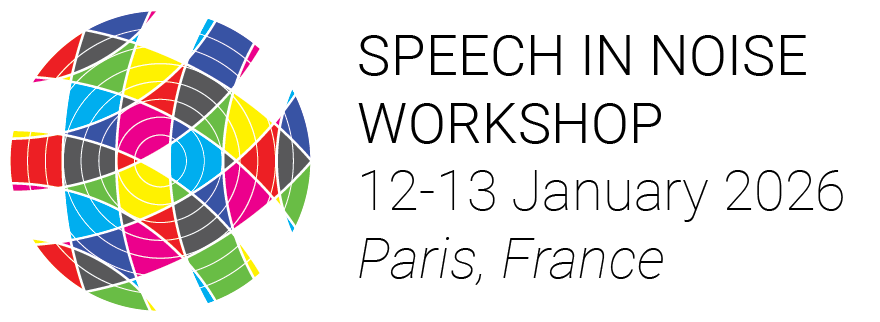P42Session 2 (Tuesday 13 January 2026, 14:00-16:30)A differential digits-in-noise paradigm for assessing binaural and temporal masking release across age groups
Binaural and temporal processing are fundamental to understanding speech in noisy environments, yet clinically accessible tools to assess these abilities—especially in children—remain limited. This study presents the development and validation of a differential Dutch-Flemish Digits-in-Noise (DIN) test paradigm aimed at quantifying binaural unmasking and modulation masking release effects using low-linguistic-load stimuli presented in noise. The test comprises multiple listening conditions that manipulate binaural phase information and masker modulation to isolate distinct auditory processing mechanisms.
Three studies were conducted: (1) a psychometric evaluation of the perceptual equivalence of the speech items in normal-hearing (NH) adults (N = 12); (2) the establishment of reference values and test-retest reliability in another NH adult cohort (N = 24); and (3) an evaluation in typically developing NH children aged 6–12 years (N = 34), comparing self-administered versus administrator-controlled test modes.
Results show that, owing to iterative perceptual equalization efforts, the test yields reliable speech reception thresholds (SRTs) across conditions, with consistent effects reflecting expected unmasking mechanisms. In children, SRTs improved with age, with difference measures (quantifying unmasking) being less sensitive to age-related variability. No significant performance differences were observed between administration modes.
These findings support the feasibility of the differential DIN paradigm for assessing binaural and temporal auditory processing in both research and clinical settings. By capturing key auditory unmasking mechanisms with minimal language demands, the test offers a promising tool for auditory profiling.
This study was funded by the Flemish Research Foundation (TBM-grant T000823N) and by the Clinical Research and Education Council of the University Hospital of Leuven (internal grant for academic studies).

